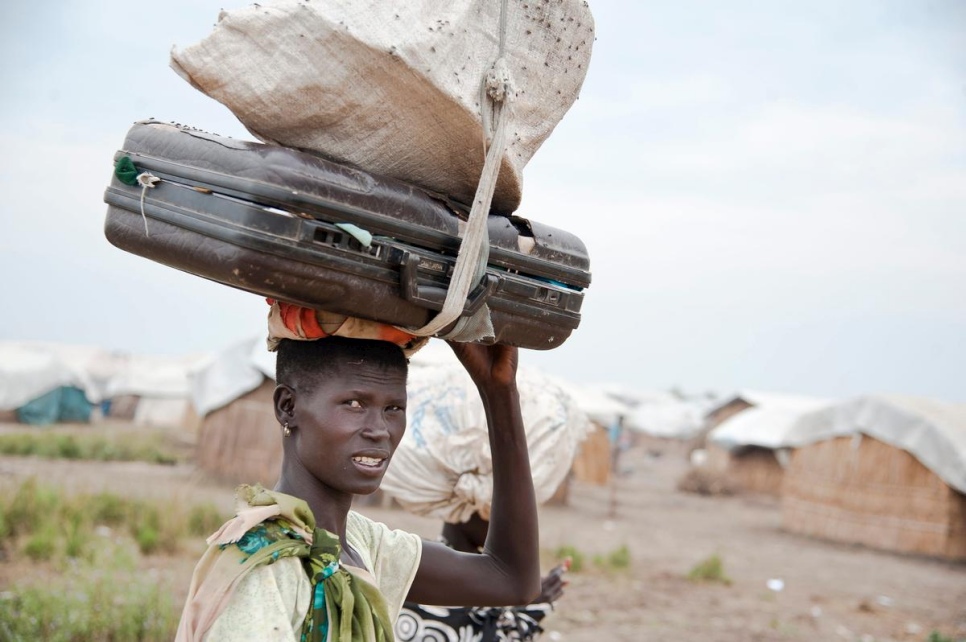This is a summary of what was said by UNHCR spokesperson Leo Dobbs – to whom quoted text may be attributed – at the press briefing, on 12 July 2016, at the Palais des Nations in Geneva.

Nyakong, 22, fled fighting in South Sudan in 2014 and crossed the border to Ethiopia. “I left my children at home so that I could search for food,” she says. “They can’t walk here as the area is full of water and I can’t afford the boat.” © UNHCR/Catianne Tijerina
UNHCR is calling on all armed parties to ensure safe passage for people fleeing the fighting that erupted late last week in Juba between troops loyal to President Salva Kiir and First Vice-President Riek Machar and we urge neighbouring countries to keep borders open to people seeking asylum.
We, like the UN Security Council and many others, condemn the violence in Juba but welcome efforts by the two sides to implement a ceasefire and hope this holds. Our office in Juba reports a tense calm overnight with no reports of more population displacement. OCHA has reported that the fighting displaced some 36,000 people.
Inside South Sudan, some 7,000 internally displaced people have sought shelter in the UN’s bases in Juba. Providing them with food, shelter, water, hygiene and sanitation facilities will remain a critical challenge so long as the security situation remains bad.
UNHCR is also worried about the situation of some 9,000 urban refugees, who have told UNHCR about their security concerns as well as difficulties in getting food and water. Other refugee-hosting sites across South Sudan are reported to be calm.
Meanwhile, some borders have been affected such as the Uganda-South Sudan crossing, where security is tightened on the South Sudan side. This has led to a significant decrease in the number of new arrivals coming into Uganda over the weekend.
Just 95 people crossed on Saturday, dropping to 36 on Sunday, compared with a daily average of 167 for July and 171 for June. We expect a higher level of new arrivals once the border reopens.
Those that have managed to cross have reported indiscriminate attacks against civilians, with buses from Juba to the Uganda border being stopped and robbed.
In western Ethiopia’s Gambella region, UNHCR has stepped up border monitoring with Ethiopia’s refugee commission. Emergency preparedness is in progress in Kenya, Sudan and other neighbouring countries in case of a major influx.
There has not been any big influx at the Kenya-South Sudan border, though over the weekend UNHCR received 36 individuals from Eastern Equatoria state. We have stepped up border monitoring and await more news.
Meanwhile, all our staff in Juba are accounted for. They have been advised to remain in a safe location and to avoid any movement outside. Juba remains extremely tense. The airport has been closed.
For more information on this topic, please contact:
• In Juba, Rocco Nuri, nuri@unhcr.org +256 779 663 793
• In Nairobi, Teresa Ongaro, ongaro@unhcr.org, +254 735 337 608
• In Kampala, Charles Yaxley, yaxley@unhcr.org , +256 (0) 776 720 045
• In Gambella, Sulaiman Momodou, momodu@unhcr.org +251 935 978 519
• In Geneva, Leo Dobbs, dobbs@unhcr.org +41 79 883 6347
By: Leo Dobbs


